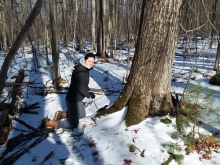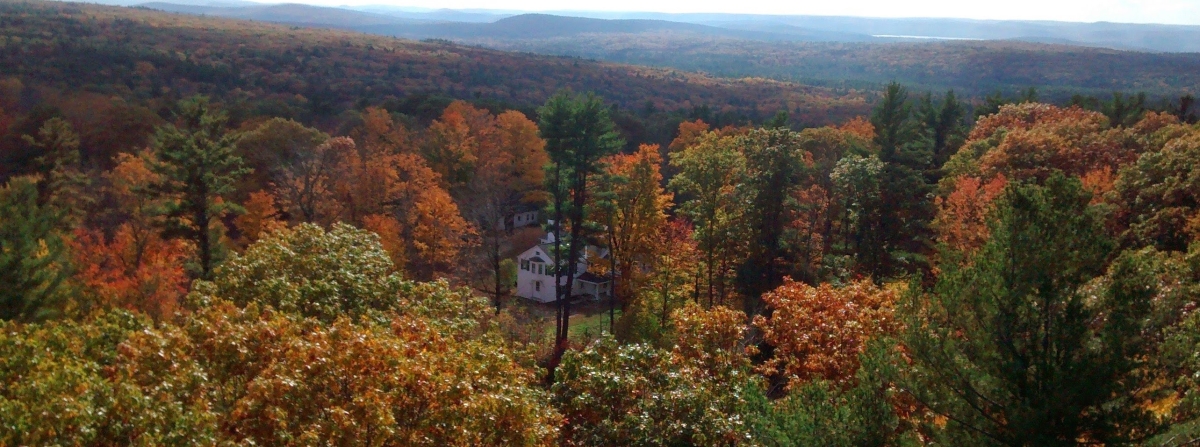You are here
Bullard Spotlight: Meghan Blumstein on Forest Genomics and Climate Change

A Charles Bullard Fellow in Forest Research for the 2023-2024 academic year, Meghan Blumstein’s interdisciplinary work at Harvard Forest aims to understand how temperate and boreal forests will respond to predicted global changes. During her Fellowship, Blumstein, an Assistant Professor of Environmental Sciences and Architecture at the University of Virginia, has been investigating the adaptive capacity of northern red oak, integrating genetic and environmental data into predictive models. Her research scales from molecules to ecosystems, shedding light on the genetics of phenology and its interplay with changing environments.

During her Fellowship, Blumstein’s dedication has led to significant achievements in publication. Two pieces advocate for increased evolutionary research at long-term ecological sites like Harvard Forest. In one of the articles, published in New Phytologist, her contribution to an urban tree ecophysiology network examines how urban forests differ from rural forests such as Harvard Forest in their responses to stress, leveraging comparisons to long-term data collected by Long-Term Ecological Research sites. Notably, her work in the American Journal of Botany, the winner of their synthesis prize, suggests innovative ways to integrate genomics into existing records for profound eco-evolutionary insights.
In parallel with her publications, Blumstein’s Fellowship plans include deepening ties at Harvard Forest and forging new collaborations across Harvard University. Her research seeks to not only advance ecological understanding but also inform conservation strategies and urban planning initiatives worldwide. As she delves into her research on the adaptive capacity of northern red oak, Blumstein’s work holds promise for offering crucial insights into the future of forests under global change.

